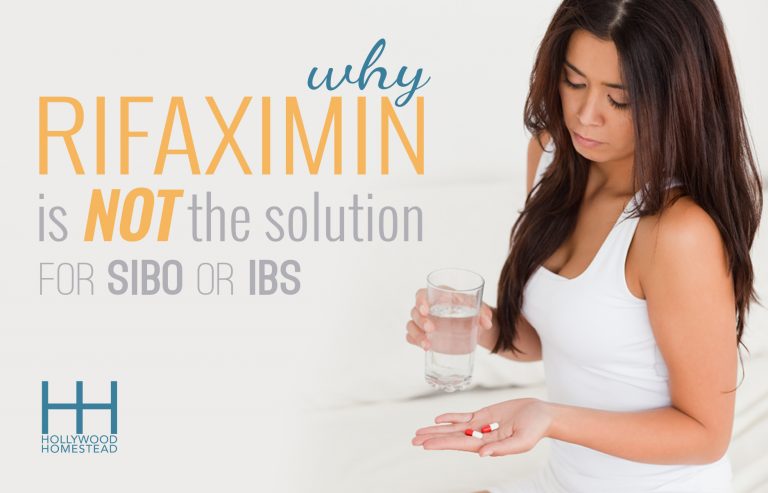
Rifaximin is the brand name for the antibiotic drug
Xifaxan. Like all antibiotics, it works by killing off bacteria. What makes Rifaximin different is that it is non-systemic, meaning that it doesn’t get absorbed into the bloodstream and instead stays in the intestines. Thus, Rifaximin is often prescribed for intestinal infections such as Small Intestinal Bacterial Overgrowth (SIBO). Rifaximin was also recently approved for treating Irritable Bowel Syndrome (IBS).
Why Rifaximin is Prescribed for SIBO and IBS
Irritable Bowel Syndrome is a condition which affects upwards of 15% of the population. Yet, until recently, doctors were mostly clueless as to what causes IBS. The disorder was largely dismissed as stress and patients were told to “take it easy” and “watch what they eat.”
Now, we are finally starting to realize that IBS is a condition caused by dysbiosis of gut flora. In layman’s terms, this means that the levels of bacteria in our guts has become unbalanced.
SIBO is a condition in which there is too much and/or the wrong kind of bacteria in the small intestine. Research shows that as many as 84% cases of IBS are really misdiagnosed cases of SIBO! So, if you have been diagnosed with IBS, there is a good chance that you really have SIBO.
Since Rifaximin is an antibiotic which kills bacteria in the gut, it should be no surprise that multiple studies have shown it effective in getting rid of IBS and SIBO symptoms. In 2015, the FDA approved Rifaximin for treating IBS with diarrhea (IBS-D).1 Rifaximin is often prescribed for treating SIBO.
*Note that is why diets help for IBS and SIBO. Those diets all work by removing foods which bacteria feed off of.
My Own Personal Experience with IBS and SIBO
I should also note here that IBS and SIBO are something personal to me. I had long dealt with GI symptoms which were diagnosed as IBS. Only after nagging my doctor did he finally order a breath test which confirmed that I really had SIBO (read about how to diagnose SIBO here).
My doctor prescribed Rifaximin and, like so many others, I hoped that popping these antibiotic pills would cure me. And, like so many others, I soon found that curing SIBO isn’t as easy as taking an antibiotic.
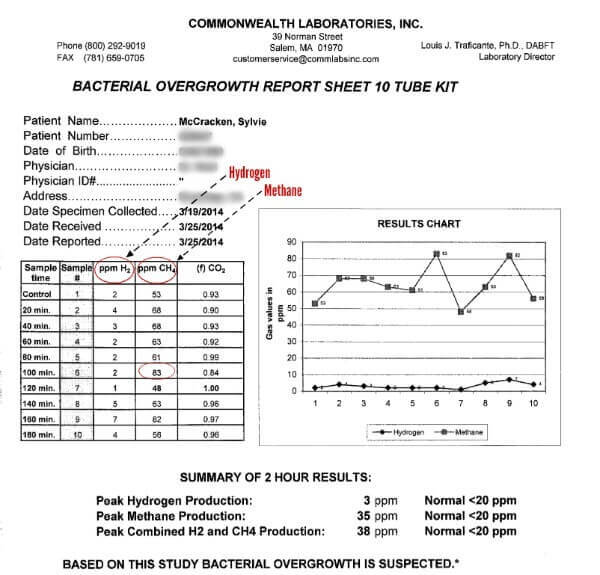
Rifaximin Is Ineffective for IBS and SIBO in the Long Run!
For the millions of people who suffer from IBS or SIBO, it should be great news that Rifaximin is an approved treatment.
But there is one little problem: Symptoms come back!
The recurrence rates of IBS and SIBO after treatment with Rifaximin are appalling.
IBS Recurrence Rate with Rifaximin
An initial study into Rifaximin for IBS found that symptom relief lasted 10 weeks after stopping the medication.2
Later clinical trials followed patients for longer. One study found that 64% of IBS patients relapsed after 6 weeks of taking Rifaximin. However, approximately 1/3 of patients did go 22 weeks without relapsing. Considering that there is no other IBS treatment other than diet protocols for managing symptoms, this makes Rifaximin a very attractive option for patients and doctors alike.3, 4, 5
SIBO Recurrence Rate with Rifaximin
There is a lot of variance in the findings of Rifaximin-SIBO findings. The antibiotic isn’t always effective for SIBO (depending on the study, Rifaximin is 40% to 91% effective in treating SIBO). When Rifaximin is effective for treating SIBO, the results don’t last long.6, 7 Studies show that SIBO recurs in almost half of patients within 1 year of treatment with antibiotics!8
Why Rifaximin Doesn’t Work in the Long Run
It’s an understatement to say that gut flora is complex. Researchers are only now starting to understand the multitude of roles that gut flora has in our daily wellbeing. Unbalanced gut flora could be at the root of diseases like depression, anxiety, obesity, autism, diabetes, and heart conditions.
Consider that we have 100 trillion bacteria in our intestines alone. This is 10x the number of cells we have in our bodies! The research is still in its infancy, but it is really fascinating stuff. To learn more, read this article on Gut Flora Dysbiosis.
Antibiotics like Rifaximin indiscriminately kill off ALL bacteria. They do NOT balance out the bacteria in our guts.
Rifaximin will likely relieve IBS and SIBO symptoms for a short time (because the antibiotic has reduced the amount of bacteria in your gut). But, once those bacteria start to breed again (and they will), the symptoms will only return.
Can’t I Just Take Rifaximin Again When Symptoms Return?
When I was diagnosed with SIBO, my doctor prescribed me Rifaximin and Neomycin (another antibiotic for SIBO) for 14 days. The 14-day course of antibiotics didn’t even come close to getting rid of my SIBO.
My doctor was ready to prescribe me more antibiotics for my SIBO. I later learned that it would have probably taken four courses of antibiotics to get rid of my severe case. And, considering the high recurrence rate, I probably would have had many more courses of antibiotics in the future!
There are a numerous reasons why you wouldn’t want to take antibiotics each time your SIBO or IBS recurs:
1. The Cost of Rifaximin Isn’t Cheap
According to Drugs.com, the cost for a supply of 30 Rifaximin tablets is $547. That doesn’t even include the costs of going to the doctor to get your prescription. Even with health insurance, the copay costs can quickly add up.
2. Rifaximin Can Have Some Nasty Side Effects
Drugs.com also lists some of the common side effects of Rifaximin, including:
- Bloating
- Difficulty with moving
- Fever
- Frequent urge to defecate
- Headache
- Passing gas
- Stomach pain
- Swelling of the hands, ankles, feet, or lower legs
And those are only some of the common Rifaximin side effects – not to mention the many less-common side effects!
It is rather ironic that you’d take an antibiotic which causes many of the very same IBS and SIBO symptoms you are trying to cure, and then adds even more symptoms on top of that.
3. Antibiotics Don’t Address the Underlying Problem which Caused SIBO or IBS in the First Place
If your gut flora is unbalanced, there is a reason it got that way. Bad diet is probably the main reason for this (read how bad diet causes IBS). Other causes of gut dysbiosis could include stress, oral contraceptives, alcohol, or antibiotics.9
Which brings us to….
4. Antibiotics May Cause SIBO and IBS
We now know that taking antibiotics disrupts our gut flora. The disrupted gut flora can lead to SIBO. It can also cause IBS by damaging the nerves in the gut.10
Luckily, most of the time our gut flora seems to recover from antibiotics quickly. However, this isn’t the case with everyone. As microbiology expert Jeroen Raes says in his Brussels TEDx talk on the subject,
“If you get a normal dose of broad-spectrum antibiotics, some of you will recover, in terms of gut flora, after a few weeks. For some of you, it will take months. For some of you it can take over a year for your gut flora to become ‘normal’ or to return to what it was again. And for some people, they never recover. They have permanently altered their gut flora.”
Considering that antibiotics may be the underlying cause of SIBO and IBS, it is ironic that Rifaximin is prescribed for treatment! If you want to learn more, read how antibiotics can cause IBS.
What’s a Better Alternative to Rifaximin for SIBO or IBS?
Sorry to break it to you, but there is no one easy solution for curing IBS or SIBO for the long run. Because our gut flora is so complex, it often takes a multifaceted approach.
For me personally to cure my SIBO, I took herbal antibiotics along with a prokinetic while simultaneously doing an elemental diet. I then followed a careful diet afterwards to ensure my gut bacteria developed in a balanced way.
You might not need to do all of this to cure your SIBO or IBS. But, if you haven’t had success with Rifaximin or simply don’t want to take antibiotics, one or more of these alternatives are worth considering.
Herbal Antibiotics
As with pharmaceutical antibiotics, herbal antibiotics also work by killing off bacteria in your body. However, herbal antibiotics are less likely to cause side effects, they don’t cause antibiotic resistance, and they may even be more effective.
The reason why herbal antibiotics are preferable over Rifaximin is because herbal antibiotics work on many levels. Whereas antibiotics like Rifaximin are just one isolated chemical, herbal antibiotics contain multiple chemicals which work together to attack bacteria on multiple levels.
In one study which compared herbal antibiotics to Rifaximin for SIBO, it was found that herbal antibiotics were effective with 46% of users compared to just 34% of the Rifaximin users. You can read more about herbal antibiotics for SIBO here.
There are numerous herbal antibiotics which can be used as an alternative to Rifaximin. These are the ones I used:
- Allimed (Allicin) 450mg: Allicin is a component of garlic. Take 1-2 caps 3x per day for a total of 14 days (start with 1 cap 3x per day and on day 3 increase to 2 caps 3x per day). It is important that you take 450mg! You can buy Allimed here. You will need 1 bottle for a 14 day course.
- Berberine Complex: Berberine is a compound found in Oregon grape, barberry, goldenseal, and other herbs. Take 2-3 caps 3x per day for a total of 14 days (start with 2 caps 3x per day and on day 3 increase to 3 caps 3x per day; can cause headaches). You can buy Berberine here. You will need to buy 2 bottles for a 14 day course.
- Neem Plus: Neem is a tropical evergreen tree. Take 1 cap 3x per day for a total of 14 days. You can buy Neem here. You will need 1 bottle for a 14 day course.
I took all three of these herbal antibiotics for a 14 day course. Because 84% cases of IBS are really SIBO, it makes sense that these same herbal antibiotics would work for IBS patients as well.
Probiotics
In forums around the web, there is all sorts of anecdotal evidence of probiotics helping for SIBO and IBS. The reason for this is because probiotics are “good” bacteria which live in our guts. These good bacteria have important roles in digestion and some of them even kill off “bad” bacteria.
The problem with probiotics is that they are just one to a few different strains of bacteria. Consider that we’ve got at least 5,600 separate strains of bacteria in our colon alone.11 It is unlikely that adding two or three strains of bacteria as a probiotic to the mix is going to cure the unbalance!
This doesn’t mean that probiotics aren’t helpful. Here are some probiotics which are proven to work for IBS or/and SIBO. Unfortunately, I can’t recommend brands for all of them because, even if they are available, many manufacturers add off-limit ingredients. I’ve included links to the probiotic brands I can recommend.
- Saccharomyces boulardii: This is actually a type of yeast which fights off pathogenic bacteria and reduces inflammation. You can buy it here.
- Lactococcus lactis Rosell-1058: This probiotic produces enzymes which help digest starches and lactose. It is proven to help reduce bloating.
- Bifidobacterium bifidum MIMBb75: This probiotic was found to relieve pain, discomfort, bloating, urgency, and digestive disorder significantly in IBS patients.
- Bifidobacterium infantis 35624: Research suggests that this probiotic has immune-modulating roles which make it helpful for reducing pain, bloating, and bowel movement difficulty. Klaire Labs makes a gut-friendly probiotic with Bifidobacterium infantis called Ther-Biotic Complete. You can buy it here.
- Bacillus Indicus (HU36TM): Better known by its brand name MegaSporeBiotic, this is a soil-based probiotic which many SIBO and IBS sufferers have reported success with.
- Bifidus lactis: This probiotic is shown to enhance the immune system, reduce occurrence of antibiotic-associated diarrhea, and support proper bowel movements. Kirkman makes a good probiotic with this strain. You can buy it here.
- Lactobacillus plantarum: This probiotic is shown to reduce bloating, normalizes stool frequency, relieve abdominal pain, and improve IBS symptoms, prevent overproduction of yeast, and reduce bacterial translocation. This is also found in Ther-Biotic Complete by Klaire Labs. You can buy it here. 11, 12, 13, 14, 15
Note: Only Take Probiotics without Prebiotics
Bacteria is a living thing and it needs to eat something. This is true for probiotics as well. To help the probiotics thrive in the body, probiotic manufacturers often add something called a prebiotic, which is basically food for the probiotic.
The problem is that prebiotics can feed the “bad” bacteria living in your gut. Many of the prebiotics are also not allowed on the FODMAPs diet which is commonly used for treating IBS and SIBO symptoms. Without the prebiotics, the probiotics might not be able to repopulate your gut so you will have to take probiotics every day until your gut bacteria is reset.
Long-Term Diet Changes
As mentioned before, Rifaximin doesn’t address the underlying cause of your IBS or SIBO. To get rid of IBS or SIBO for good, you need to get rid of what caused it in the first place. In many cases, this is probably bad diet.
If you don’t fix your diet, the IBS or SIBO will probably come back eventually. Now is the time to stop eating all of those starchy foods, sugars, processed junk, and chemical additives.
Yes, You CAN Beat This!
IBS and SIBO can be frustrating and ruin your life. And treatment isn’t always easy either. But I want to emphasize that you can beat this disorder and get your life back.
There is only so much information I can give in a blog post. If you want detailed information on how to beat SIBO for good along with step-by-step instructions for treatment methods and diet protocols, download my eBook The SIBO Solution. You can buy it here.
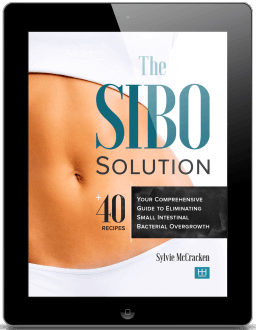
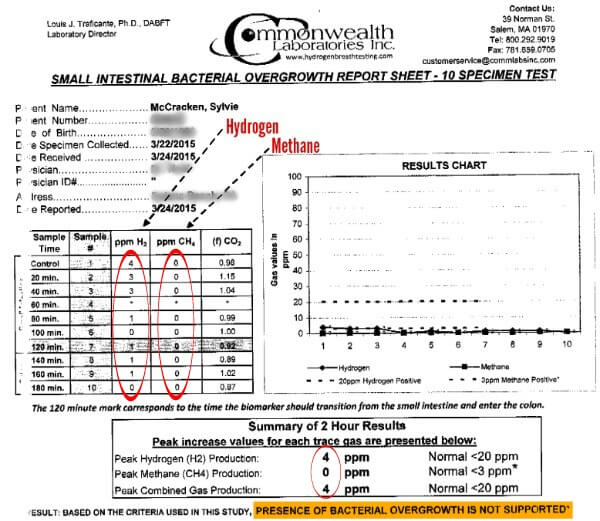
Have you taken Rifaximin for IBS or SIBO? I’d love to hear your experiences!
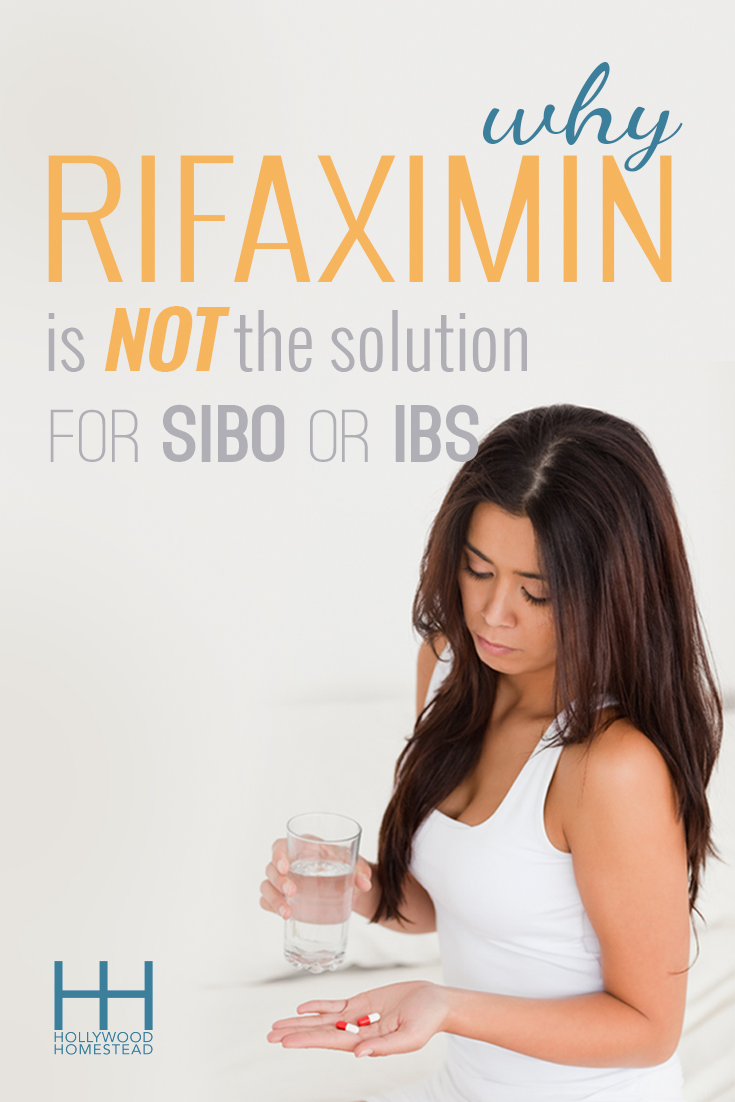
Original article and pictures take www.hollywoodhomestead.com site
Комментариев нет:
Отправить комментарий